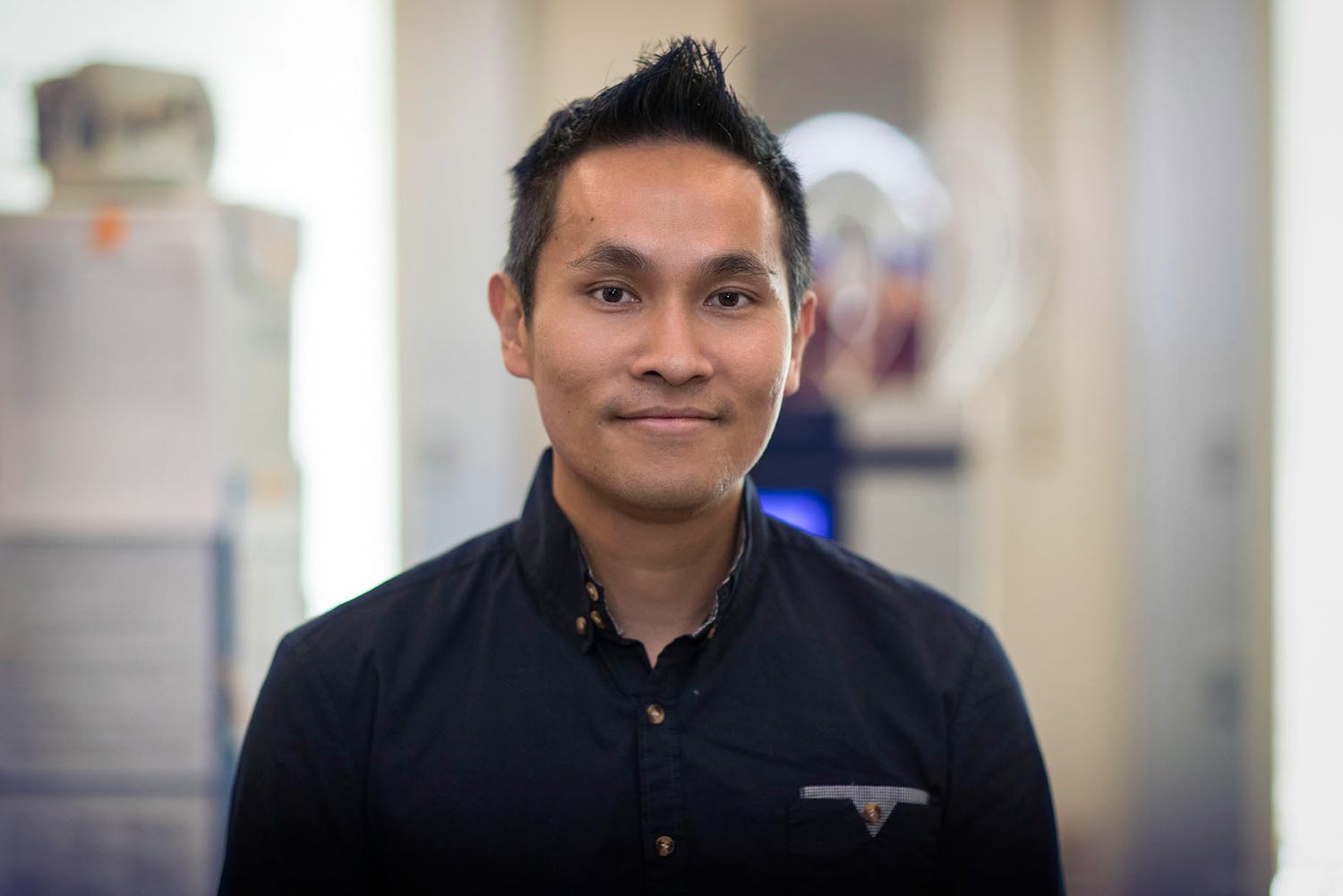In August, the U.S. Food and Drug Administration approved the latest iteration of the burgeoning field of immune therapy for cancer, in this case allowing the genetic modification of a patient’s own immune cells so that they can effectively recognize and respond to cancerous cells.
Last month, the University of Virginia Health System began a cellular immune therapy clinical trial for the treatment of a type of pediatric leukemia.
And just recently, UVA chemist Ken Hsu won a $600,000 career development award from the U.S. Department of Defense to pursue an innovative approach to using the body’s immune system to kill melanoma cells.
“With FDA approval of immunotherapy and clinical trials demonstrating the efficacy of this type of treatment, we are entering an exciting and highly promising era for the precise, targeted treatment of cancers and other life-threatening diseases,” Hsu said. “Fortunately, UVA is extremely well-positioned to lead in this field through our basic research and clinical trial experience.”
Hsu, who came to UVA’s chemistry department two years ago from a postdoctoral fellowship at the Scripps Research Institute in La Jolla, California, has teamed up with his UVA mentor, chemistry professor Don Hunt, as well as immunologist Tim Bullock and Dr. Craig Slingluff, director of UVA’s Human Immune Therapy Center, to develop and refine novel cancer treatment options that someday may become mainstream.
Slingluff already has a strong 20-year research program targeting melanoma. Hsu’s lab is bringing additional innovative approaches to fighting the disease.
“We have had a strong core focus on melanoma immunotherapy at UVA for many years, leading the way in cancer vaccines,” Hsu said. “With recent recruits, we now have a cluster of experts here at UVA who are bringing a diversity of perspectives to understanding the molecular mechanisms underlying the immune system and how tumors grow – at a time when immunotherapy is coming to the forefront as a viable treatment option.”
Immunotherapy involves several approaches, one of which (as in August’s FDA approval) involves extracting an individual’s immune cells, genetically modifying them in the lab to recognize and kill specific cancer cells, and then injecting the altered immune cells back into the body. Studies indicate that this may in some cases be the best approach to killing off otherwise persistent cancers, possibly for the lifetime of the patient, in what may be a one-time use of the therapy.
“We’re entering a new frontier in medical innovation with the ability to reprogram a patient’s own cells to attack a deadly cancer,” FDA Commissioner Dr. Scott Gottlieb said in August when his agency approved a type of gene-modified cellular immune therapy. “New technologies such as gene and cell therapies hold out the potential to transform medicine and create an inflection point in our ability to treat and even cure many intractable illnesses.”
As promising as immunotherapy is for treating certain cancers, only 25 to 30 percent of melanoma patients currently respond well to the treatment using existing approaches. Hsu is looking to greatly improve this by seeking previously undiscovered molecular targets that become overactive in T cells found in tumors to suppress patient immune responses. He has discovered an enzyme that metabolizes lipids, or fats, and aims to develop drug-like molecules to target this enzyme for immune therapy of cancer.
T cells, or T lymphocyte cells, are a type of white blood cell that are key to the body’s immune system. They circulate in the bloodstream, identifying and attacking infections and abnormally growing cells.
“Dysfunctional T cells that have been isolated from patient tumors contain high levels of the lipid metabolic enzyme we’ve identified, suggesting that if we block its pathway we can restore T cell function and allow the body to mount a durable immune response against cancer,” Hsu said.
Working with the Human Immune Therapy Center, Hsu hopes to eventually develop a drug that could expand options for the long-term treatment of melanoma. His goal is to translate findings from the laboratory bench into the clinic within three years. He believes the treatment option could be modified and made applicable to many cancer types.
“My Department of Defense grant highlights how UVA’s rich biomedical environment enables cross-Grounds interactions between chemists, pathologists and clinicians to develop innovative therapies that can be real game-changers in our treatment of devastating and deadly diseases that society faces today,” Hsu said.
The Department of Defense is funding this early work because military personnel have a higher rate of melanoma incidence than the general population due to more frequent exposure to sunlight and various carcinogens.

Media Contact
Article Information
October 3, 2017
/content/immunotherapy-ramps-chemist-wins-600000-early-career-grant

